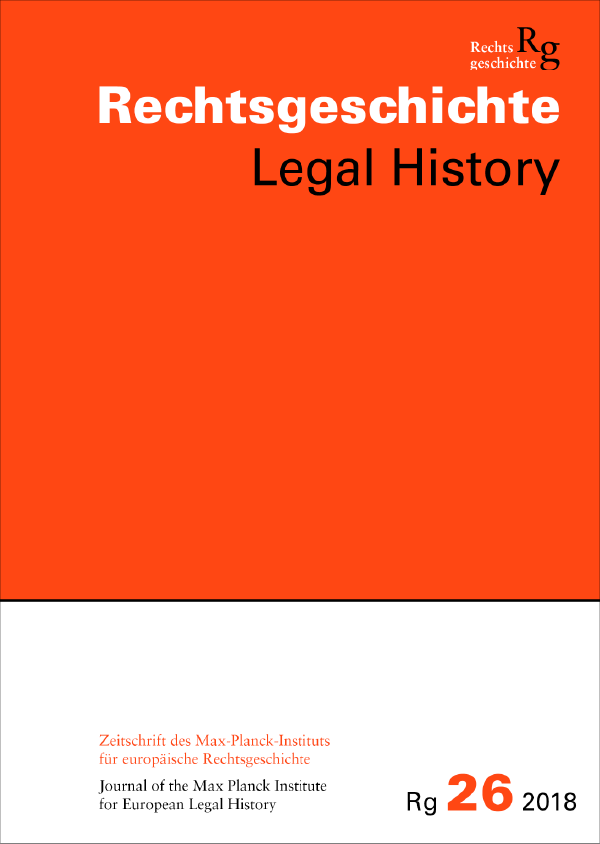Republics, their Customs, and the Law of the King: Convivencia and Self-Determination in the Crown of Castile and its American Territories, 1400–1700
DOI:
https://doi.org/10.12946/rg26/162-199Schlagworte:
convivencia, hidden jurisdictions, interlegality, Spain, Latin AmericaAbstract
This article examines a conflict over indigenous inheritance law in one small corner of the 16th-century Spanish Empire – the northern Andes – in order to open a window onto legal traditions in the wider Hispanic world. A specific emphasis is devoted to the mechanisms that placed custom (unwritten norms) at the center of early modern Spanish legal theory, making the Spanish monarchy one especially adapted to incorporating diverse social elements. By focusing on the latemedieval / early modern conception of »republics« – cultural communities oriented toward cohesive action preserving their common good – as the basic unit of study, and on custom as the basic guarantor of their continuing self-determination, I suggest ways to think about the legacy of Iberian convivencia both within and outside of its traditional medieval frame.
Downloads
Veröffentlicht
Zitationsvorschlag
Ausgabe
Rubrik
Lizenz
Copyright (c) 2018 Autor/in

Dieses Werk steht unter einer Creative Commons Namensnennung - Nicht-kommerziell - Keine Bearbeitung 3.0 International -Lizenz.





